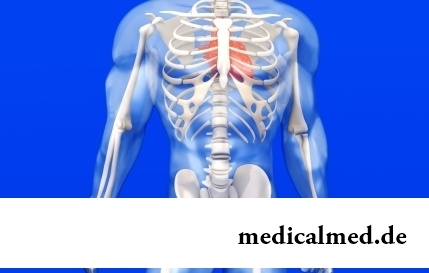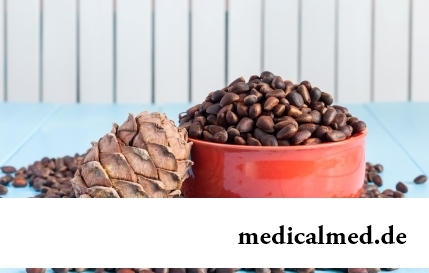





Toxicologist
The toxicologist – the doctor who is engaged in diagnosis, prevention and treatment of poisonings. Poisoning – defeat of an organism the poisoning and harmful substances. As the independent profession, toxicology was allocated in the 19th century, and the term "toxicology" comes from two Greek words: "toxicos" (poison) and "logos" (science). Thus, the toxicologist is engaged in a research and treatment of the diseases resulting from toxic impact on an organism of chemicals. Respectively, its main objectives is finding of methods of improvement and treatment of poisonings.

In addition to search of means for treatment and the prevention of poisonings, the toxicologist has knowledge of a possibility of useful use of poisons as for anybody not a secret that some poisons in small doses make on an organism medical impact whereas the overdose, apparently, absolutely safe medicines quite often leads to poisoning.
What diseases and bodies enter competence of the toxicologist?
First of all at organism poisoning with poisons the liver, heart, kidneys and blood is surprised. Therefore in practice of the toxicologist it is most often possible to meet the following diseases:
- liver failure;
- poisoning;
- renal failure;
- organism intoxication.
When it is necessary to address the toxicologist?
It is necessary to address the toxicologist at any symptoms of poisoning of an organism: alcoholic, narcotic, food, industrial and household, and also at stings of insects and snakes, not medical use of medicines. Competence of the toxicologist includes observation of patients with chronic intoxication of an organism, and also a renal or liver failure.
Intoxication of an organism happens acute and chronic. Acute intoxication means that poisoning resulted once from use of a large amount of toxic agent. Acute intoxication violently proceeds, and its symptoms are strongly expressed.
Chronic intoxication of an organism results from accumulation in an organism of small doses of toxic agent throughout the long period. The most typical symptoms of chronic intoxication are: sleep disorders, emotional instability, nausea, disturbance of memory and attention, headaches, bystry fatigue, deterioration in outward (pallor of integuments, change of a condition of hair and skin).
What should be expected on reception at the toxicologist?
On the first reception the toxicologist will try to define classification and degree of poisoning of the patient. The main task of the toxicologist at first-aid treatment to the patient is statement of the correct diagnosis. It is very important to define correctly classification of toxic substance that it was possible to bring it out of an organism or to neutralize in an organism. After that the toxicologist starts elimination of the effects caused by poisoning with poison.
The toxicologist adheres to approximately following sequence when holding medical actions as a result of poisoning of the patient with chemicals:
- Adsorption reduction, that is probe gastric lavage, stimulation of an emetic reflex, acceptance by the patient of absorbent carbon, etc.
- Antidotal therapy, that is use by the patient of biochemical, chemical and symptomatic antagonists, drugs of anti-toxic action.
- Elimination strengthening, that is stimulation of secretory functions and diuresis, administration of liquid, repeated acceptance by the patient of absorbent carbon.
At a serious poisoning when the patient fells into a coma, the toxicologist intravenously administers the drug flumazenit (анексат).
The well-known drug "Viagra" was initially developed for treatment of an arterial hypertension.

Dogrose – one of the most widespread adornment and medicinal plants growing practically in all territory ours...
Section: Articles about health
Eyes – one of the most vulnerable areas on a face therefore age changes concern them first of all. Whether it is possible to keep look youth for many years and what procedures are offered for achievement of this purpose by cosmetologists? And maybe, only thing of a vari...
Section: Articles about health
Life activity of one-celled fungi of the sort Candida, related to yeast is a proximate cause of development of candidiasis (milkwoman). Normal these microorganisms are a part of the microflora living in an oral cavity and intestines of most of people and also in a female genital tract. The pathological phenomena are observed when fungi begin to breed too violently. At the same time there is an inflammatory process affecting mucous membranes and which is shown very nepr...
Section: Articles about health
Statistically, pathologies of a thyroid gland in the world more than 500 million people have. Failures in work of this body conduct to is heavy...
Section: Articles about health
Obesity is called a disease of 21 centuries, for the last 100 years the number of the people suffering from excess body weight considerably increased. Statistically, on Earth already about 1,5 billion corpulent people, and 500 million from them have extreme degree of completeness, are negative...
Section: Articles about health
For many women the word "fat" sounds as a sentence. In aspiration to an ideal figure they try to exclude, first of all, from the menu all dishes containing fats without having at the same time a clear idea of a role of these substances in exchange processes, and of effects for health with which food restrictions of this sort are fraught. For what the human body needs fats and as their deficit in a diet is shown, we also will try to find out....
Section: Articles about health
At this plant there are a lot of names: tuberiferous sunflower, Jerusalem artichoke, solar root, earth pear. Contrary to spread...
Section: Articles about health
Iodine - one of thirty most important microelements in our organism. The main role of iodine consists in synthesis of thyroid hormones of a thyroid gland - the substances which are responsible for the majority of exchange processes of an organism. It is known that thyroid hormones consist...
Section: Articles about health
The phenomenon of improvement of a condition of the patients at administration of drugs who are not containing active agents, so-called effect of placebo is known long ago. At the end of the 18th century the American doctor Perkins began to treat people the "miracle" sticks made of alloy of steel and brass. Was for several minutes to press such subject enough to a sore point that it became much easier for the patient. Having suspected Perkins of charlatanism, his colleagues tried to repeat "miracle" by means of sticks, steles...
Section: Articles about health
The medicine promptly develops, and the fact that else quite recently it seemed by miracle can now. We are not surprised any more to the fact that sport...
Section: Articles about health
Tuberculosis – a serious infectious disease which development is caused by mycobacteria (Koch's bacilli). The illness is known from an extreme antiquity. Long time fight against it was considered as ineffective. Quite often the disease affected the whole families, and mortality from it was very much...
Section: Articles about health
The person, as well as all other beings living on our planet feels weather changing. It is the normal meteosensitivity which is not causing to healthy people of special troubles. Meteodependence, on the contrary, is the morbid condition which is characterized by an exacerbation of chronic illnesses at change of air temperature, differences of atmospheric pressure, wind strengthening, magnetic storms and other "surprises" on which the nature is so generous. The people suffering from meteodependence have to з...
Section: Articles about health
In consciousness of our many compatriots idea that folk remedies if no more эфф strongly took roots...
Section: Articles about health
It would seem, about it there can be no disagreements: water is necessary for a human body for normal life activity, and about how and when it should be drunk, all know. It turned out that the situation is not absolutely so: for many years occur ве...
Section: Articles about health
High temperature - a frequent symptom of such widespread diseases as a SARS, quinsy, pneumonia, etc. To reduce heat, having facilitated a condition of the patient, doctors recommend to accept antipyretics, however their use is not always possible. Too frequent use of these drugs can lead to allergic reactions, and also overdose, causing poisoning. It happens also that there are no antipyretics simply in the house. In these situations it is pertinent to use it...
Section: Articles about health
Olive oil – the product capable to make a powerful contribution to health of the person if it includes it in the diet. Rich vitamin...
Section: Articles about health
Let's begin with the fact that a separate illness which is called "adjournment of salts", just does not exist. In practice this household name of disbolism leading to development of a number of diseases. Pathological process consists that in an organism проис...
Section: Articles about health
Today about 30 diseases, sexually transmitted are known. Wide circulation of these illnesses is extremely promoted by the dual attitude towards them: on the one hand, most of people know about "shameful" diseases very little and do not aim at receiving detailed and reliable information, considering that such problems personally will never concern them. With another – there are delusions about STD which instill unreasonable confidence that troubles such...
Section: Articles about health
Venereal diseases in medicine are called the infections which are transmitted preferential sexually, now they are so...
Section: Articles about health
Beauty shop – the place which is associated only with positive emotions: joy, pleasure, relaxation. However visit of salon where work with biological material of clients, not always harmlessly is conducted. Today it is known Bol...
Section: Articles about health
Good appetite was always considered as a sign of good health. The correct operation of the mechanism which is responsible for the need for nutrients and receiving pleasure from process of its satisfaction demonstrates that the organism functions without special deviations. On the other hand, appetite of the person is not a constant. It depends on the culture of food, flavoring addictions imparted since the childhood which can change during life, weather, mood and many д more than once...
Section: Articles about health
Not without reason doctors say that 90% of diseases begin or develop because of misoperation of intestines. Disturbance of its functions связ...
Section: Articles about health
Life expectancy in various regions of Earth is not identical. Social stability, economic wellbeing, availability and level of medical care, household comfort, literacy of the population in the field of observance sanitary гигиен exert impact on it...
Section: Articles about health
The hysteromyoma is diagnosed more than at a third of women 35 years are more senior. This high-quality new growth which at early stages successfully resolves by means of medicines. It is necessary to resort to an operative measure only when patients too late address specialists, or therapeutic methods do not give the expected effect because of specific features of an organism. Besides, there is a large number of quite effective national...
Section: Articles about health
Aging — natural and inevitable process. Over time our skin loses elasticity, on it saggings, a face form теря are formed...
Section: Articles about health
There is a lot of fans of beer in our country. Statistically, on each average Russian (including women and children) in a year about 60 liters of this drink are consumed. It is not a lot of, as in the Czech Republic or Germany, but figure all the same impressive. Radova...
Section: Articles about health
Residents of big cities quite often have a disease which is known as the syndrome of chronic fatigue (SCF) today. This illness affects the people belonging to various social and demographic groups and living on all continents. Most of all SHU are subject women aged from 25 up to 45 years. Statistically, the number of cases fluctuates in the different countries from 10 to 37 people on 100 thousand, but specialists believe that these figures are significantly underestimated as people, страдающ...
Section: Articles about health
